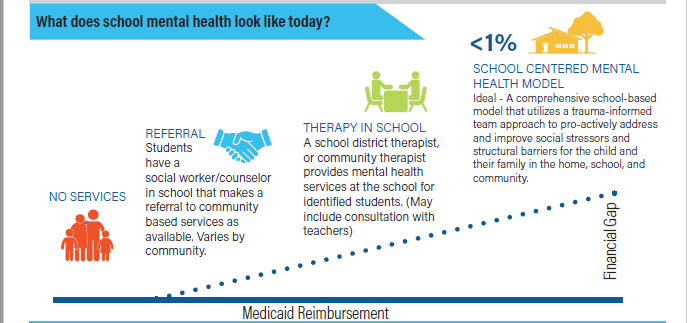Partners of Change
A New Vision for School Mental Health Services
All children and families deserve access to culturally appropriate, comprehensive and preventative mental health services that partner with schools and families to prepare Wisconsin students for academic success and successful transition into adulthood.
The Partners of Change (PoC) committee is a coordinated group of individuals, community organizers, schools, coalitions, donors and healthcare providers committed to improving children’s mental health in Wisconsin. We believe in action, not just discussion. This is an urgent issue, and we are using our collective expertise to influence policy change at the state level including Medicaid changes, and increased funding.
If you would like more information on Partners of Change please email PartnersofChange@lsswis.org.
What Does Partners of Change do?
- The PoC is a results-driven group committed to influencing policy change to sustain more comprehensive and impactful, preventative mental health services through advocacy and data collection.
- The PoC will provide programming oversight to ensure fidelity of the model. This includes consistent data collection across programs via utilization of the same assessment tools, screeners and questionnaires.
- The PoC will provide data analysis and data sharing oversight to demonstrate the impact and success of SCMH services across Wisconsin.
Why do we need Mental Health in Schools?
When schools can provide mental health supports to identified students we see these outcomes:
• Increased academic success
• Decreased behavior concerns or time out of the classroom
• Reduce the dropout rate
• Foster a school climate that supports learning
Even with adequate funding, the role of a social worker, school counselor, and/or community partner would be insufficient to meet the needs. We believe our children and families deserve better.
What is our plan for policy change? 
Current reimbursement for mental health services is less than the cost to providers.
PoC is asking the state legislature to:
- Renew consultation reimbursement that is set to end in June of 2019. COMPLETED
- Advocating to align data collection to demonstrate the need and impact of school-based services.
- Fund pilot program in multiple communities across the state of WI.
- Expand the scope of what is reimbursable under Medicaid including a continuum of support.
- Increase overall Medicaid reimbursement rates for Mental Health services.
Partners of Change Materials
Partners of Change Video In partnership with Rogers In Health
Tell me more 
The School Centered Mental Health model is a comprehensive school-based model that utilizes a trauma-informed team approach to pro-actively engage the child and their family in the home, school, and community.
The SCMH therapist and Family Coach work together and with the child’s family, school team, and other identified supports and/or service providers to implement the model’s seven components described below.
School Partnerships
• On-board and partner with schools who can:
• provide referrals and onsite space for therapy
• implementation of child-specific interventions.
• support data collection for program outcomes.
• share data related to academic success, attendance & behavior referrals
Therapy
• Evidence-based individual and/or family therapy at school, in-home or community.
• Increased parent engagement and access to services
Family Coaching
• Provide skill development, parent education that align with therapeutic goals
• Co-create strength-based home interventions
• Connect the family to needed resources that impact social determinants of health
Behavior Interventions
• Conduct classroom observations
• Develop child-specific behavior interventions and support teacher implementation
• Foster positive teacher/student relationships
• Improve classroom learning environment
Health Navigation
• Connect families to needed community health services
• Help establish primary care providers
• Expanded health education
Training and Education
• Provide parent and community education
• Facilitate school staff training
Research and Assessment:
• Collect data using valid and reliable assessment tools.
• Conduct shared analysis with other school-based programs
• Use data to measure impact
For more detailed information you can find more information in our SCMH White Paper.
